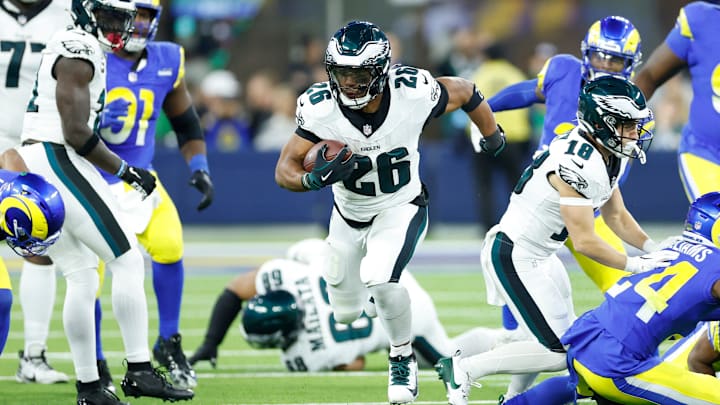Barkley (and company) will revive RB position
In 2023, the market for veteran free agents appeared to have little interest from NFL teams. Some of the top rushers in professional football signed contracts that came in far lower than originally projected. Some viewed this market change as a sign that running backs were going the way of the Dodo bird. Others did not.
The NFL annual free agent market is a fickle thing. The marketplace sets the value of specific positions of an NFL team. But the fair market value established each year is dependant upon a wide range of factors. The basic foundations of Econ 101 apply of course. That is to say that there is a constant presence of both supply and demand forces acting in opposition to set the price each year. Then, there is a perceived quality and fit factor of specific players that override the basic fair market value (FMV) of a specific positional group.
Finally, there is a perception of talent that will be made available in the annual NFL Draft. NFL teams, limited by the annual salary cap, are eager to draft cheap rookies for the next four (or five) seasons, rather than pay FMV for a veteran. But the quality of rookies is never a sure thing.
But the Baltimore Ravens and Philadelphia Eagles knew what they wanted, and who they wanted, and committed to signing a veteran free agent running back who they felt was an ideal fit for their team and offensive philosophy. The Ravens added veteran RB Derrick Henry, while the Eagles signed veteran RB Saquon Barkley. The Eagles signed Barkley to a three-year $37.5 million contract. The Ravens signed Henry to a two-year $16 million contract.
But it's Barkley's contract that will revive and redefine the running back market for the NFL. Here's how.
